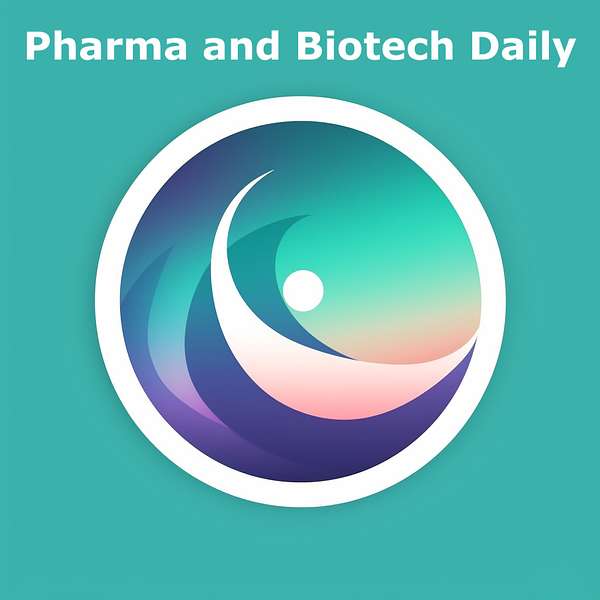
Pharma and BioTech Daily
Pharma & Biotech Daily is a short, AI-generated, human-supervised briefing on what’s important in pharma and biotech.
Each weekday we condense key news on pipelines, deals, regulation and strategy into a quick audio update for people who build, run and invest in life sciences.
Produced by OWITH.ai, a boutique AI & data studio.
Sponsor the show: https://sponsor.owith.ai
Pharma and BioTech Daily
Transformative Advances in Cancer Therapy and Regulatory Challenges
•
Pharma Daily
•
Season 1
•
Episode 561
Good morning from Pharma Daily: the podcast that brings you the most important developments in the pharmaceutical and biotech world. Today, we're diving into a series of impactful events and breakthroughs that are shaping patient care and drug development.The U.S. Food and Drug Administration recently granted early approval for a combination therapy using Padcev and Keytruda for the perioperative treatment of bladder cancer, a decision made months ahead of schedule. This approval represents a significant advancement in the therapeutic landscape for this type of cancer, offering new hope to patients who have had limited treatment options. The combination of these two therapies underscores the growing trend of integrating multiple mechanisms of action to tackle complex diseases like cancer more effectively. It also highlights the potential of combination therapies to provide enhanced clinical benefits by leveraging different therapeutic targets.In another notable development, Merck's partner Kelun announced successful Phase 3 trial results for an antibody-drug conjugate combined with Keytruda in treating PD-L1-positive non-small cell lung cancer (NSCLC). The trial results demonstrated statistically significant improvements in progression-free survival compared to Keytruda alone. This finding reinforces the expanding role of antibody-drug conjugates in oncology and emphasizes the importance of biomarker-driven therapies in personalizing cancer treatment. These advancements reflect a broader industry shift towards precision medicine, which aims to improve patient outcomes by tailoring treatments based on individual patient profiles.Meanwhile, Novo Nordisk experienced setbacks as its shares fell nearly 9% following two unsuccessful Phase 3 trials of semaglutide for Alzheimer's disease. Despite these disappointing results, this outcome highlights the persistent challenges and complexities inherent in developing therapies for neurodegenerative diseases—areas where unmet needs remain substantial. The market's reaction reflects investor sensitivity to clinical trial outcomes, particularly in high-stakes areas like Alzheimer's where breakthroughs are eagerly anticipated.Switching gears to AstraZeneca, the company is making a strategic move by expanding its manufacturing capabilities with a $2 billion investment in Maryland. This expansion reflects an ongoing trend among pharmaceutical companies to enhance their production infrastructure, driven by increasing demand for biologics and complex therapeutics. Such investments are crucial for supporting large-scale production needs and ensuring robust supply chains that are essential for meeting global health demands.In regulatory news, a collective letter from biotech CEOs addressed to FDA director Marty Makary has raised concerns about regulatory stability in the U.S., with 82% of biopharma respondents expressing apprehension over the FDA’s ability to function predictably. This plea underscores how regulatory volatility can hinder innovation and emphasizes the importance of consistent policies that support long-term research and development efforts.In clinical trial updates, Bayer's oral FXIa inhibitor asundexian has shown promise in reducing stroke risk during Phase 3 trials. These findings revive interest in FXIa inhibitors as potentially blockbuster drugs after previous setbacks in this class. This development illustrates ongoing efforts to identify novel anticoagulant therapies that balance efficacy and safety, offering new hope for improved therapeutic options.Now turning our attention to Johnson & Johnson's recent setback with their anti-tau antibody posdinemab in a phase 2 trial targeting Alzheimer's disease. The trial was unable to demonstrate a significant slowing of clinical decline, leading J